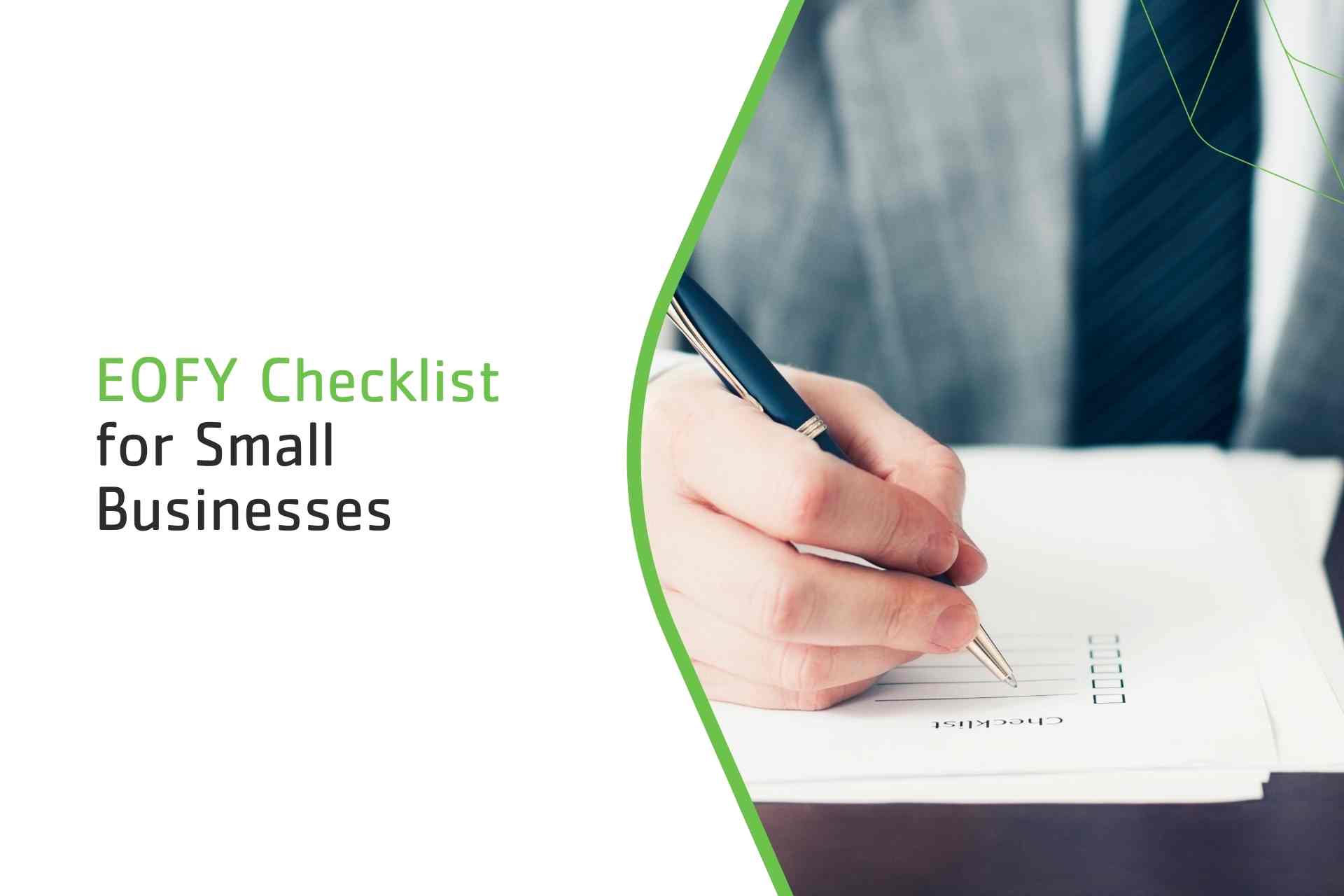As the end of the financial year (EOFY) approaches, it’s crucial for business owners, whether new or established, to stay organised and proactive. Here’s your essential EOFY checklist, designed to streamline your processes and ensure compliance across key financial areas.
Table of Contents
- Key Financial Tasks and Compliance
- Payroll and Superannuation Requirements
- Important EOFY Dates
- Optimising Deductions and Expenses
- Strategic Financial Planning
- Protecting Your Business
- Resources and Further Reading
- What’s Next
- Webinar: Closing the Books: EOFY Essential Checklist & Strategies from Carbon Bookkeeping
EOFY Checklist: Key Financial Tasks and Compliance
Profit and Loss Statement
- Prepare a detailed summary of your income and expenses to assess your business’s financial performance over the past year.
- This enables better strategic decision-making and financial planning.
Inventory and Asset Management
- Conduct a comprehensive stocktake to evaluate your current inventory.
- Review asset registers for any new purchases or improvements.
- This is essential for calculating depreciation, tax deductions and managing potential capital gains tax liabilities.
Debtors and Creditors Summaries
- Review and update records of all accounts receivable and payable.
- This can improve cash flow management and help identify potential bad debts for write-off.
Tax Returns and Compliance
- Income Tax Returns: Ensure all financial records are accurate and complete to comply with tax laws and avoid penalties.
- Compliance with PAYG, FBT, and GST: These reports are necessary for managing cash flow and meeting tax obligations. Detailed records will streamline the process and help avoid discrepancies.
- Lodging Yearly Reports: This includes different tax types that your business may be accountable for. Ensure accuracy to prevent future liabilities.
Payroll and Superannuation Requirements
Super Guarantee for Employers
- Timeliness and accuracy in SG contributions are legally required.
- Missing these deadlines can result in penalties, interest charges and non-deductible amounts.
- Read more about super for employers on our blog: Everything You Need to Know About Paying Super: A Small Business Owner’s Guide.
Individual Super Contributions
- To claim super contributions for employees as a business expense in the current financial year, the payment needs to have been received by the super fund before 30 June.
- By maximising your super contributions before the EOFY, you can reduce your taxable income and save on taxes at your marginal tax rate.
Income Statements and STP
- Accurate and timely finalisation of STP ensures that your employees’ tax and super information is correct, preventing issues during their personal tax return process.
Important EOFY Dates
June 2024
- 21 June: Lodge monthly IAS/BAS
- 25 June: Lodge and pay FBT annual return
- 30 June: Stocktake for businesses; review payroll & GST thresholds
- 30 June: Super guarantee payments must be in the fund by this date to qualify for a deduction
July 2024
- 14 July: STP final event SAW (salary and wages)
- 21 July: Lodge payroll tax; lodge monthly IAS/BAS
- 28 July: Lodge Qtr 4 BAS; Qtr 4 super deadline
- 31 July: STP small employer finalisation
August 2024
- 21 August: Lodge monthly IAS/BAS
- 28 August: Lodge TPAR
September 2024
- 21 September: Lodge monthly IAS/BAS
- 30 September: STP CHP (Closely Held Payee) finalisation where mix of CHP & SAW; Finalise EOY; Review cash flow budget
October
- 21 October: Annual PAYGI due
- 31 October: Lodge PAYGW ABN not quoted; PAYGW interest, dividend, and royalty to non-residents
EOFY Checklist: Optimising Deductions and Expenses
Review Deductible Expenses
- Analyse expenses such as repairs, accounting software, office expenses and subscriptions to ensure they are classified correctly for tax purposes.
Asset and Debtor Management
- The end of year is the perfect time to reassess the value of your assets and review your debtors.
- Writing off uncollectable debts and obsolete stock can clean up your books and provide tax benefits.
Bring Forward Tax Deductible Purchases
- Purchasing necessary items or services before the EOFY can be advantageous for tax purposes.
- This includes maintenance, equipment upgrades, and prepaying rent or insurance.
Strategic Financial Planning
Financial Review and Planning
- A detailed review with your accountant or bookkeeper is essential.
- This includes assessing whether you’ve met financial targets and determining actions for improvement.
Insurance Review
- As your business evolves, so too should your insurance coverage.
- Regular reviews ensure you’re adequately protected without overpaying.
Business and Marketing Plans
- Adapting your business and marketing plans based on past performance and future forecasts will help seize new opportunities and address potential challenges.
Protecting Your Business
Be Alert to Tax Scams
- Familiarise yourself with the signs of tax scams to protect your business from fraudsters who become particularly active during EOFY.
Ensure Compliance with the Correct Business Structure
- Regularly reviewing your business structure with a tax accountant may lead to significant tax advantages and compliance efficiencies.
Resources and Further Reading
Access Valuable Resources
Utilise our detailed calendars to keep track of all your financial, payroll and superannuation deadlines:
What’s Next
Check Your Tax Agent’s Credentials
- Ensuring your tax agent is registered with the Tax Practitioners Board guarantees that you receive professional and compliant services.
Stay Informed
Staying informed about tax changes and updates is crucial for effective planning and maximising potential benefits. By following this EOFY checklist, you can ensure your small business remains compliant, optimises deductions and is well-prepared for the new financial year. Regularly reviewing your financial strategies with a professional can help you navigate the complexities of tax obligations and keep your business on the path to success. Remember, preparation and organisation are key to a smooth EOFY transition.






















